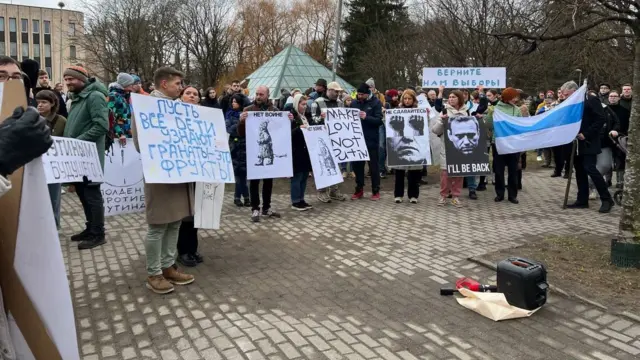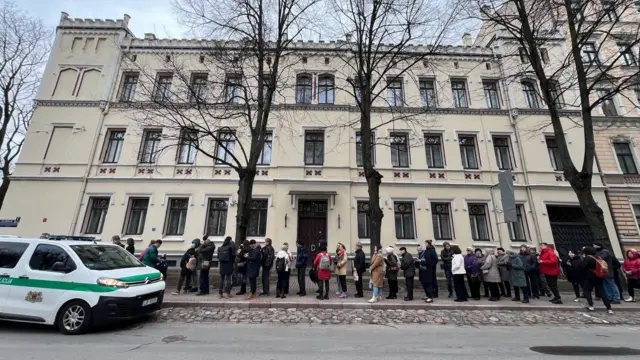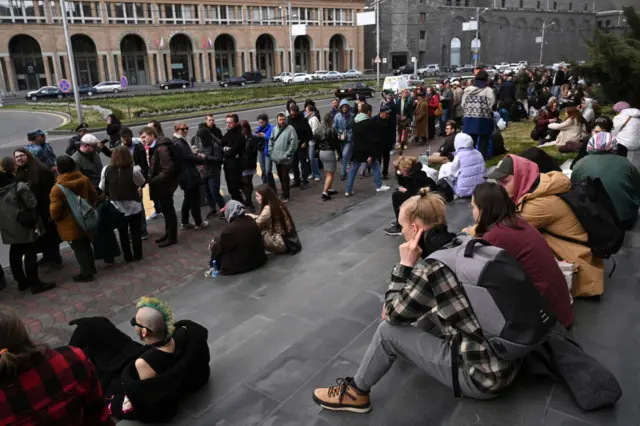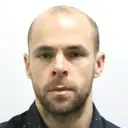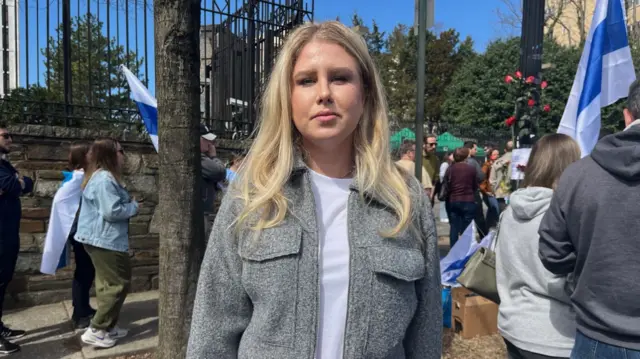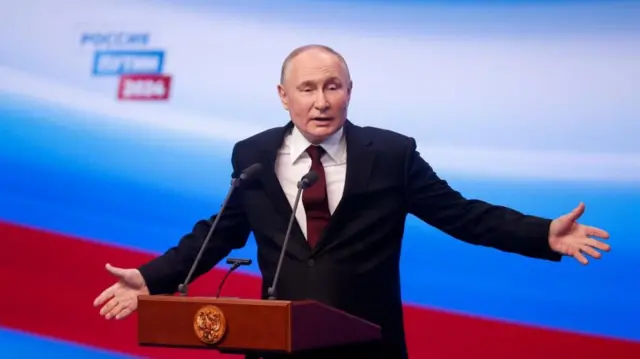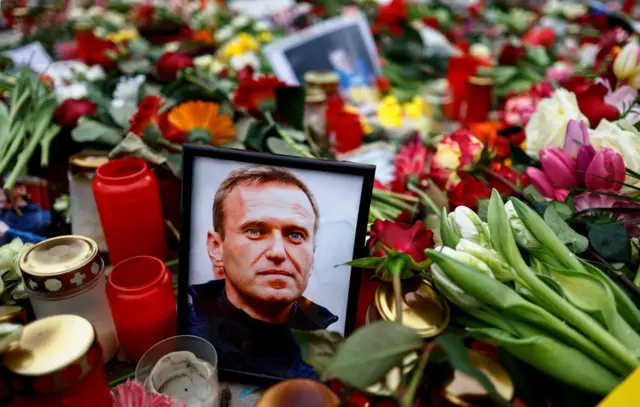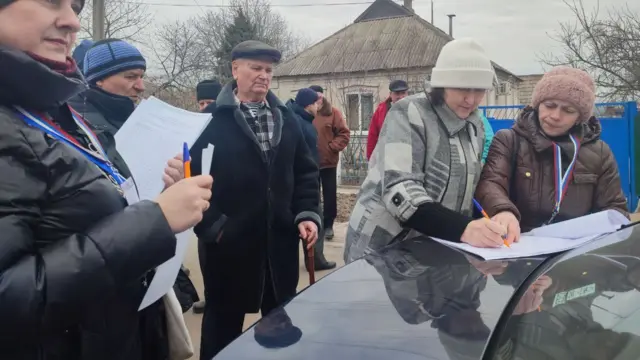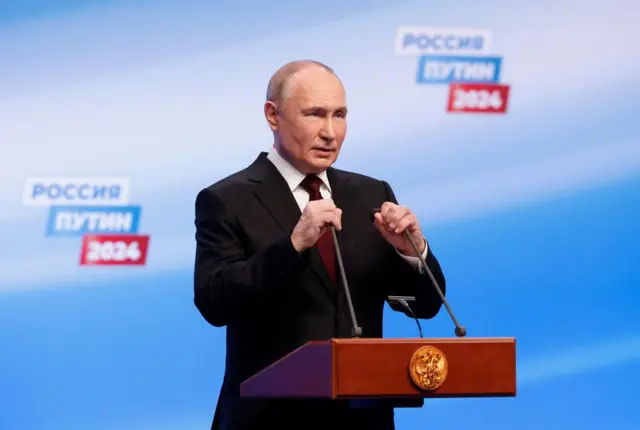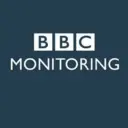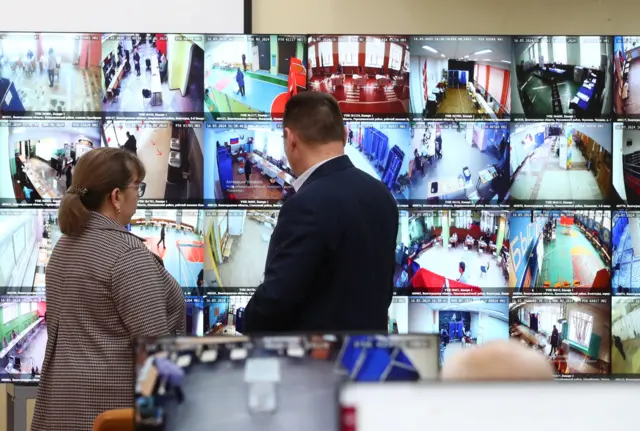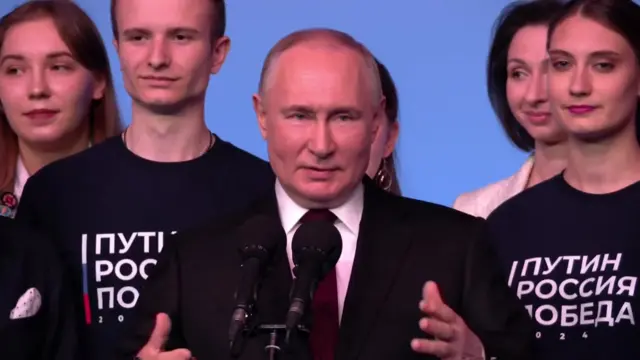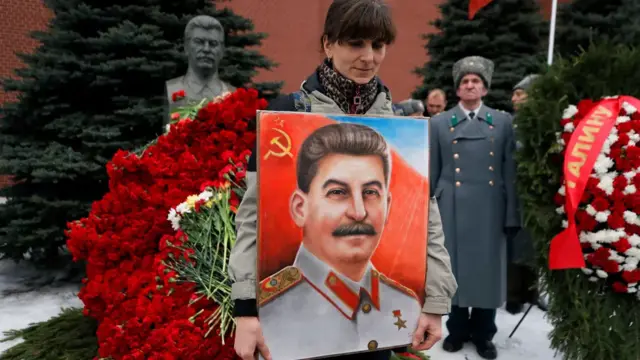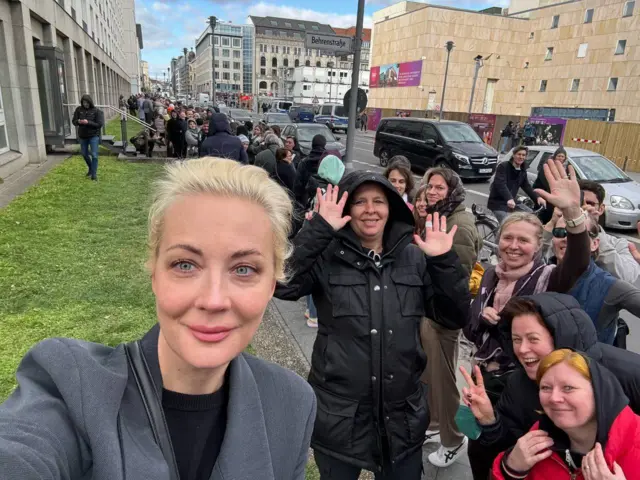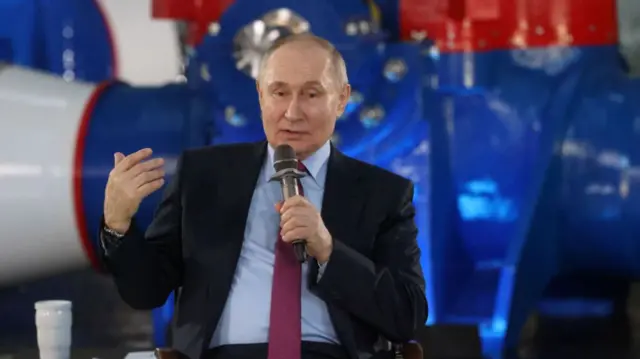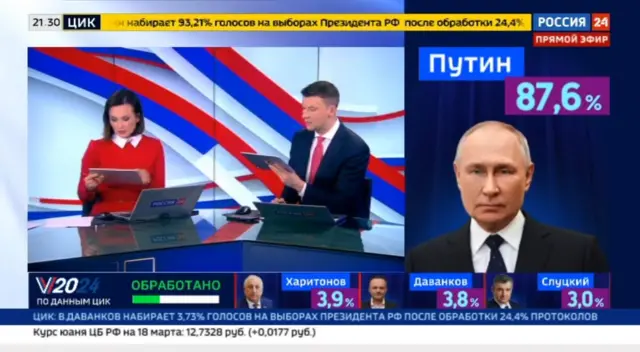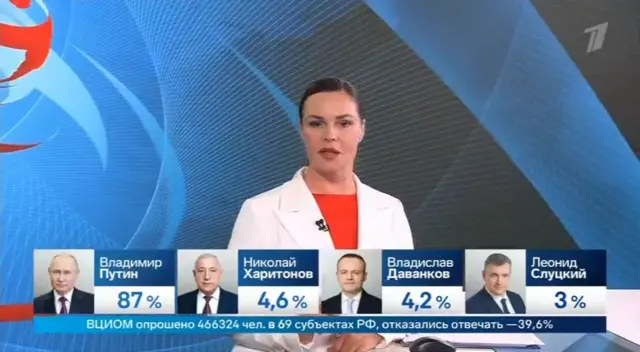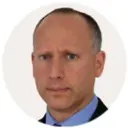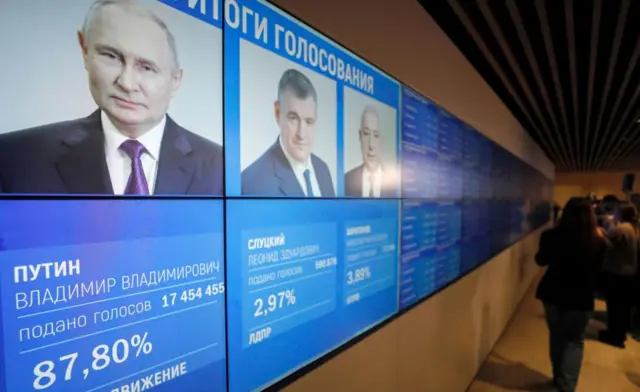'It's a way to speak out against Putin and show that there are many of us'published at 22:41 GMT 17 March 2024
Anastassia Zlatopolskaya
BBC Russian, in Tel Aviv
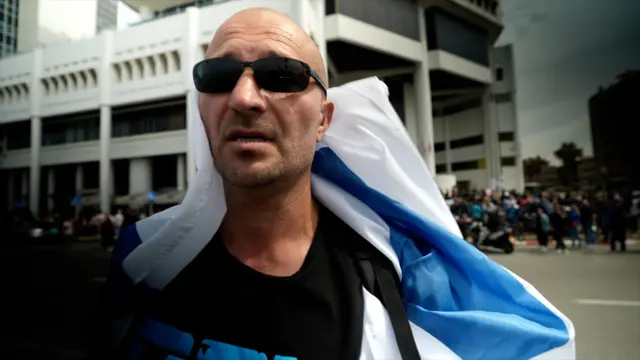
Igor at the Russian embassy in Tel Aviv
Posters hold slogans that say "Stop war" and "Open your eyes". They hold white-blue flags, which have become a semi-official symbol of Russian opposition movement, as well as the Russian tricolour as they gather at the Russia's Consulate in Tel Aviv at noon.
The queue on Kaufman Street started forming much earlier and quickly stretched for more than half a kilometre, crossing the intersection and turning around the corner for another couple of hundred meters.
Many came to vote not only from the neighbouring cities but even from the southern part of the country - Be'er Sheva, Ashkelon, Ashdod.
The hardly-moving line includes both those who came for the rally and those who just wanted to vote. Igor came from Ashdod but doesn't intend to vote: "I didn't even bother to take my passport; I don't want to have anything in common with them."
Passers-by stop to find out what the crowd is about and smile approvingly.
Konstantin came with friends from Givatayim: "It's a way to speak out against Putin and show that there are many of us. It's a way in these absolutely fake elections to convey to other people something that propaganda says - that the majority supports Putin - is an absolute lie."
"For people who oppose the regime that seized Russia it's very important to see each other. The actions of the Putin regime are aimed precisely at dividing all people, showing that we are a small marginal bunch. But in reality, no, there are many of us!".
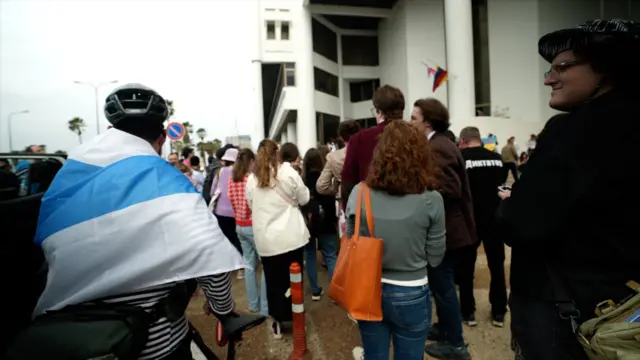 Image source, bbc
Image source, bbc